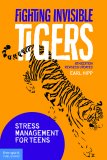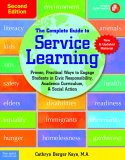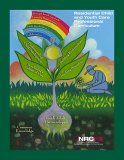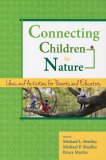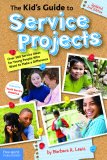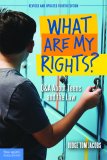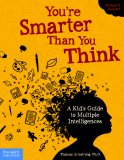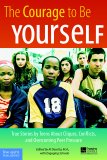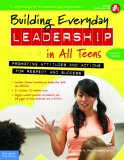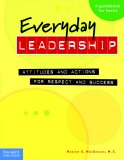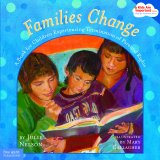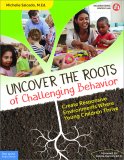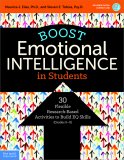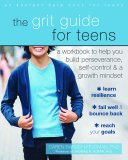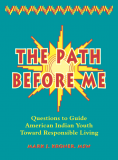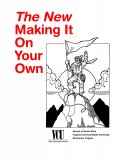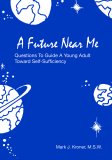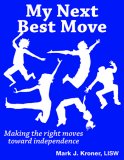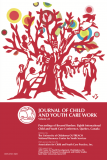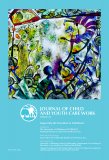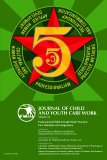Show All
-
This engaging, best-selling resource by Earl Hipp provides teens with important information on how stress affects daily life, from our health to the choices we make. Additionally, this youth-friendly guide book offers several practical activities to develop behaviors that manage stress in a healthy way including relaxation skills, time management, assertiveness, and building supportive networks of peers and adults.
-
The Complete Guide to Service Learning is the go-to resource in the fast-growing field of service learning. It is an award-winning treasury of service activities, community service project ideas, quotes, reflections, and resources that can help teachers and youth workers engage young hearts and minds in reaching out and giving back. This is an excellent resource for the classroom, out-of-school time, youth-serving organizations, or as a family.
-
This strengths and competency-based curriculum includes a strong youth development philosophy and current best practice components.
-
“Implementing the ideas in Connecting Children to Nature: Ideas and Activities for Parents and Educators will go a long way toward creating a nature-rich future.”
—Richard Louv, author of Last Child in the Woods and The Nature Principle, Chairman Emeritus of the Children & Nature Network -
This fun, affordable, and ready to use guide contains over 500 service ideas for young people who want to make a difference. All of the activities in the book are presented in an engaging, youth-friendly format, and the guide is endorsed by Youth Service America.
-
Interesting to read and easy to use, inviting teens to learn about the laws that affect them and consider their rights and responsibilities. Especially useful for mid to late teenage youth.
-
Howard Gardner’s theory of multiple intelligences has revolutionized the way we think about being smart. Written by an award-winning expert on the topic, this book introduces the theory, explains the different types of intelligences (like Word Smart, Self Smart, Body Smart), and helps kids identify their own learning strengths and use their special skills at school, at home, and in life. As kids read the book, they stop asking “How smart am I?” and start asking “How am I smart?”
-
Cassandra is hassled by her friends for sitting with the “wrong” kids at lunch. Jennifer gets harassed because she’s overweight. Dwan’s own family taunts her for not being “black enough.” Yen is teased for being Chinese; Jamel for not smoking marijuana. Yet all of these teens find the strength to face their conflicts and the courage to be themselves. In twenty-six first-person stories, real teens write about their lives and teenage peer pressure with searing honesty. They will inspire young readers to reflect on their own lives, work through their problems, and learn who they really are.
-
Every teen can be a leader. That’s because leadership is not just about taking the lead in big ways, but in everyday small things, too. The twenty-one sessions in this youth leadership curriculum guide teens to explore ethical decision-making, team-building, what it means to be a leader, how to work with others, risk-taking, communication, creative thinking, and more. Choose the sessions that seem best for your class or group, or explore leadership skills through an entire school year. Includes reproducibles, the Everyday Leadership Skills & Attitudes Inventory (a student inventory of leadership skills and attitudes), evaluation tools, and exams. Requires use of the student book Everyday Leadership.
-
Leadership is not just about taking the lead in big ways, but in everyday things, too. Written and experiential activities help teens discover their own leadership potential and develop skills that guide them to act responsibly and make a difference in the world around them. A Facilitator's Guide is also available on this topic.
-
Designed for youth 4-12. All families change over time. Sometimes a child gets a new foster parent or a new adopted mom or dad. They need to understand they can remember and value their birth family and love their new family, too.
-
Teach social skills and enrich classrooms to reduce problem behaviors and nurture growth.
-
Develop and strengthen essential emotional intelligence skills in adolescents with this practical, hands-on resource.
-
When the going gets tough, it’s time to get gritty. Written by a clinical child and school psychologist and based in the latest research, The Grit Guide for Teens will help build perseverance, resilience, self-control, and stamina.
-
Like A Future Near Me, but written specifically for American Indian youth, this pocket workbook asks 100 questions the answers to which can guide Indian youth through two worlds: their tribal community and the larger society.
-
The New Making It On Your Own tests a youth’s knowledge and challenges them to seek out new information. Workbook covers employment, apartments, home management, health, leisure time, and money management.
-
A pocket workbook for youth who are thinking about moving out on their own. It includes 100 questions to guide a young adult toward self-sufficiency. It can be used by individuals or groups to stimulate discussion.
-
A pocket workbook for youth who are thinking about moving out on their own. It includes 100 questions to help youth and young adults think seriously about the practical realities of moving out for the first time. This booklet can be used by youth who are self-motivated to think ahead or by a parent or mentor who cares about the well-being of a youth in transition to adulthood.
-
Proceedings of Beyond Borders: Eighth International Child and Youth Care Conference.
-
-
Professional Child and Youth Care Practice: Five Domains of Competence


